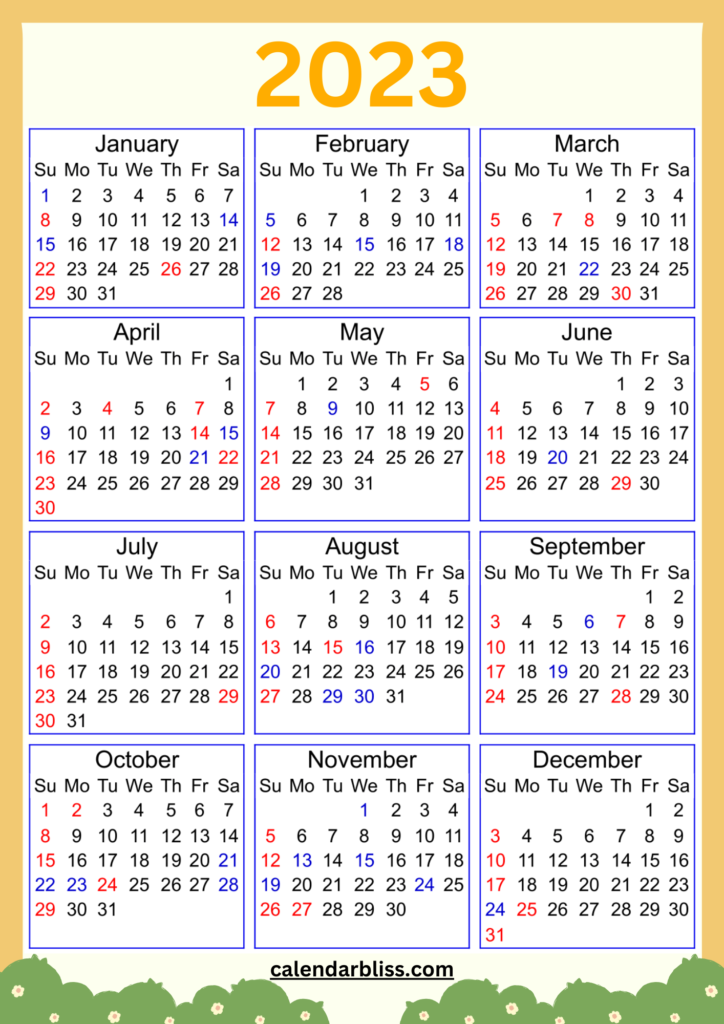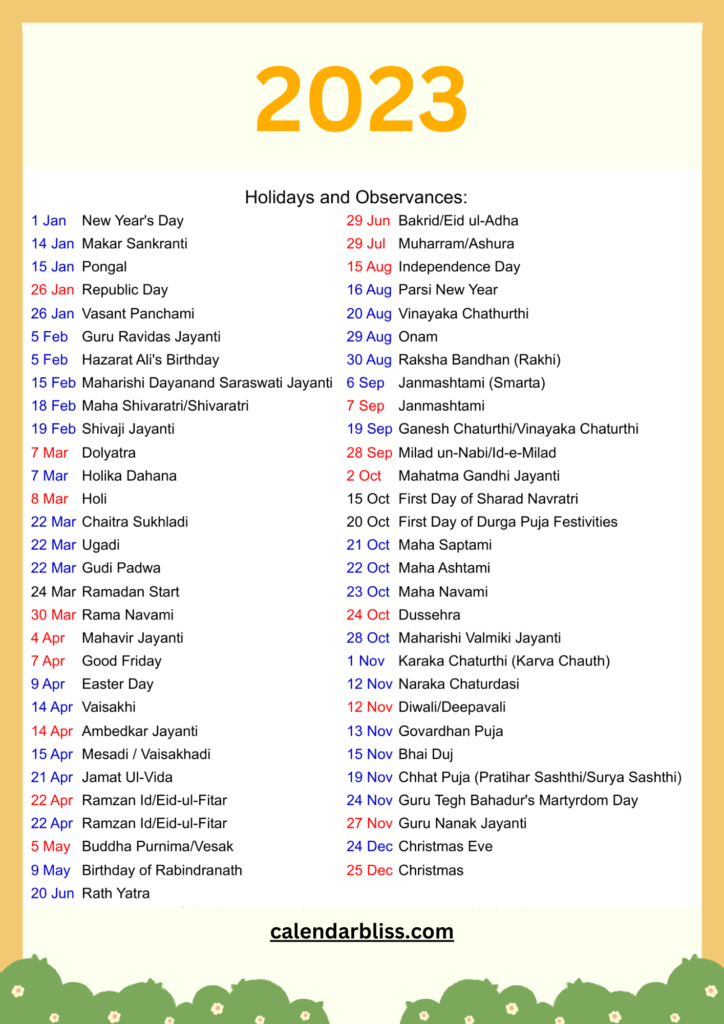Calender 2023 PDF

Print Now

Print Now
- Kalender 2024 Mit Feiertagen
- The Ethiopian Calendar: A Unique Timekeeping System
- Vikrama Samvat: India’s Ancient Calendar
- The Fiscal Calendar: A Blueprint for Business and Government
- Navigating the AACPS Calendar: A Comprehensive Guide
Calendars: Timekeepers of Human Civilization
A calendar is a system of organizing days for social, religious, commercial, or administrative purposes. It is a cultural artifact with deep roots in human history, reflecting our innate need to measure and structure time.
Types of Calendars
Calendars can be categorized based on their underlying principles:
Solar Calendars
These calendars are primarily based on the Earth’s revolution around the Sun. The Gregorian calendar is the most widely used solar calendar today.
- Gregorian Calendar: The most common global calendar, used in most countries for civil purposes.
- Julian Calendar: The predecessor to the Gregorian calendar, used by the Roman Empire.
Lunar Calendars
Lunar calendars are based on the Moon’s phases.
- Islamic Calendar: A purely lunar calendar used by Muslims worldwide.
- Hebrew Calendar: A lunisolar calendar used by Jewish people.
Lunisolar Calendars
These calendars combine elements of both lunar and solar cycles.
- Chinese Calendar: A complex lunisolar calendar used in China.
- Hindu Calendar: A collection of lunisolar calendars used in India.
Other Calendars
Beyond these primary types, there are numerous other calendars used by different cultures and for specific purposes.
Components of a Calendar
Typically, a calendar consists of the following elements:
- Year: A period of time roughly equivalent to one orbit of the Earth around the Sun.
- Month: A subdivision of a year, often based on lunar phases or arbitrary divisions.
- Week: A period of seven days, widely used for social and economic organization.
- Day: The smallest unit of time in a calendar.
- Leap Year: An extra day added to the calendar to account for the Earth’s precise orbital period.
The Evolution of Calendars
Calendars have evolved over millennia, influenced by astronomical observations, agricultural needs, and cultural practices. Early civilizations relied on lunar cycles to track time, but as societies became more complex, solar-based calendars emerged. The development of accurate timekeeping methods was crucial for agriculture, trade, and religious ceremonies.
Calendars and Culture
Calendars are deeply intertwined with human culture. They shape our perception of time, influence our daily routines, and define important cultural events. Different cultures have developed unique calendar systems, reflecting their values, beliefs, and astronomical knowledge.
Challenges in Calendar Standardization
While the Gregorian calendar has become the global standard for civil purposes, many cultures still adhere to traditional calendars for religious or cultural reasons. This diversity can pose challenges in global communication and coordination. Efforts to standardize calendars have been met with resistance due to cultural and religious sensitivities.
The Impact of Technology on Calendars
The advent of digital technology has revolutionized calendar usage. Digital calendars offer features like:
- Real-time updates: Changes made to a digital calendar are instantly reflected for all users.
- Integration with other apps: Calendars can sync with email, task management, and social media platforms.
- Reminders and alerts: Digital calendars can send reminders for appointments and events.
- Time zone management: Easily manage schedules across different time zones.
FAQs about Calendars
- Why are there different types of calendars? Different cultures have developed calendars based on their astronomical observations, religious practices, and agricultural needs.
- How accurate are lunar calendars compared to solar calendars? Lunar calendars are less accurate than solar calendars in tracking the Earth’s orbit around the Sun.
- What is the purpose of leap years? Leap years are added to compensate for the Earth’s slightly longer than 365-day orbital period.
- How have calendars influenced human history? Calendars have played a crucial role in agriculture, religion, trade, and the development of societies.
- What is the future of calendars? With the increasing reliance on digital technology, calendars are likely to become even more integrated into our daily lives, offering greater flexibility and customization.
Calendars are fundamental to human civilization, providing a framework for organizing time and coordinating activities. From the ancient lunar calendars to the modern digital age, the evolution of calendars reflects our growing understanding of the cosmos and our ability to adapt to changing needs.
Printable Monthly Calendars 2024

Welcome to Calendarbliss.com ! We specialize in creating high-quality, user-friendly calendar templates designed to boost your productivity. Our team of experienced graphic designers and event planners is passionate about helping you stay organized Calendar Bliss.
Led by calendar design expert Carol Kane, with over a decade of experience, our team blends artistic flair with practical functionality. Carol’s background in Fine Arts, combined with Carol’s keen eye for detail and cultural insights, ensures our calendars are both visually appealing and informative.
We pride ourselves on accuracy and transparency. Learn more about our team and mission on our About Us page.